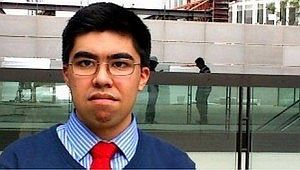A 25-year-old Mexican with the autistic condition Aspergers, has won the right to make key decisions about his life without parental consent.
The Supreme Court ruled in favour of Ricardo Adair by four votes to one, to give Mr. Adair the right to make his own decisions concerning his life. Adair's attorney's said that Mexican legislation violated the "United Nations Convention on the Rights of Persons with Disabilities."
It banned him from doing simple tasks by himself, such as applying for a passport, because of his condition. A judge will be appointed to agree which decisions Mr. Adair will be allowed to make without the consent of a parent or guardian. The groundbreaking ruling is expected to have wider implications for the rights of people with autism in Latin America.
'Great Step Forward'
"I want to be allowed to decide what to do, where to go, where and with whom I want to live or travel, where to work or study," Mr. Adair told the Mexican Supreme Court.
Mexican legislation makes straightforward tasks, such as buying a mobile phone, enrolling in university, or applying for a driving licence, very difficult for people with Asperger's syndrome or other forms of autism. Mr. Adair said all papers had to be signed by his parents or legal guardians.
He began his battle two years ago and has been supported in his fight by a non-profit organization. "All we wanted was for Ricardo's own free will to come first, and now the court has recognized that," said his lawyer, Andres Gomez Montt. Mr. Adair said he wanted to read the full court ruling before making further comments, but expressed his satisfaction at the decision.
"They have asserted our rights and I believe this is a great step forward," he said. Mexican legislation concerning people with disabilities was drafted with the intention of protecting them, by taking away legal responsibility for their actions, but Mr. Adair's mother says the law is out of date.
"Many children have different levels of disability. Some need more support, some need less. This should be about giving to each one what they need," Leticia Robles said earlier this year. The United Nation's World Health Organization describes autism spectrum disorders as "a group of complex brain development disorders."
Autism affects one of every 160 children around the world on average. "These disorders - which include Asperger's syndrome - are characterized by difficulties in social interaction and communication and a restricted and repetitive repertoire of interests and activities."
Original Story


